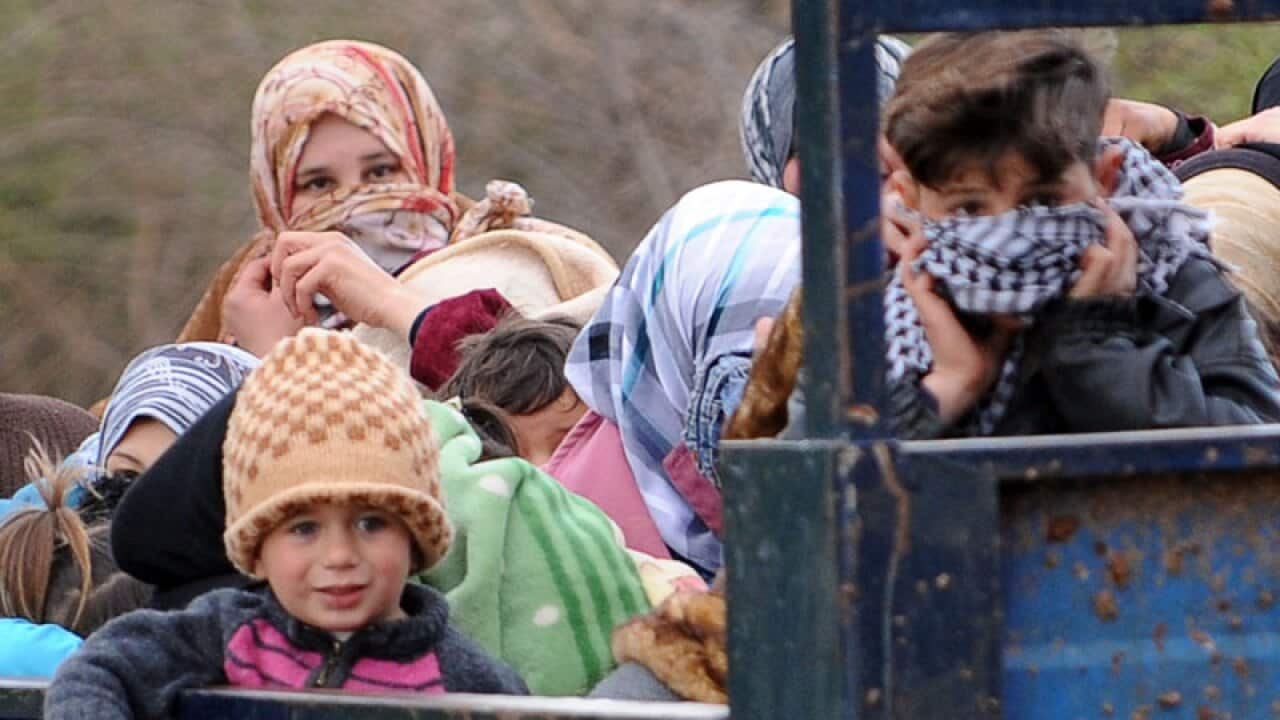By Phil Orchard
Beyond the 2.1 million refugees who have sought help outside the country, the UN estimates there are over 4.25 million internally displaced persons within Syria: people who have fled their homes but not left their own country. The problems they face are immense. A UN report from July found that one-third of the homes, over half of hospitals, and 20% of schools have been damaged or destroyed within the country.
There is already a massive humanitarian effort inside the country even as the civil war proceeds. The UN has 4,500 staff inside Syria, and 12 NGOs have an additional 600 staff. But this comes at a steep price – at least 11 UN staff and 22 Syrian Red Crescent volunteers have been killed amidst the conflict.
Ongoing fighting has limited the humanitarian effort’s effectiveness – but so too has Syrian government intransigence. They argue that the country has not internally displaced people, only people who have “left their homes” due to terrorist attacks undertaken by armed outlaws. They have impeded the delivery of a wide range of supplies, including medical aid, for fears it could be used to support the rebels.
Finally, while the government has allowed so-called “cross-line” assistance crossing rebel-held areas, they have denied aid organisations the right to engage in cross-border operations from surrounding countries for fear that much of the aid would go to opposition areas. Some independent aid organisations have provided such cross-border deliveries without the government’s consent, but UN agencies are not allowed to.
On Thursday, the UN Security Council issued a presidential statement, drafted by Australia and Luxembourg. As a statement it is non-binding and does not have the same legal force a resolution would have, but it does reflect the unanimous will of the Council. The statement notes the council’s “grave concern” that several million Syrians need “immediate humanitarian assistance, and without urgent increased humanitarian action, their lives will be at risk".
The statement explicitly notes the scale of internally displaced population. It noted the Security Council is “appalled” at the level of violence and condemns the widespread violation of human rights and international humanitarian law by the Syrian government. It also urges the Syrian government to remove bureaucratic obstacles and to facilitate the expansion of international assistance and access, including across borders. Valerie Amos, the UN’s Emergency Relief Coordinator, has previously said that:
…if the commitments and practical steps in this statement are implemented humanitarian workers will be able [to] reach over two million people who have been unreachable for many months.
Finally, the statement notes the Syrian authorities’ “responsibility to protect their populations". This is the first time the Responsibility to Protect doctrine – which establishes that each state has a responsibility to protect its own population from genocide, war crimes, ethnic cleansing, and crimes against humanity and allows for international action when a state is manifestly failing to do so – has been cited by the Security Council with respect to Syria.

A Syrian woman and her baby in a makeshift tent as they wait to enter an official refugee camp across the border from Syria in Kilis, Turkey. EPA/Tolga Bozoglu
The main issue with the statement is that it requires the cooperation of the parties to the civil war. While the opposition Syrian National Coalition has welcomed it, the Syrian government has said it would study the statement before responding.
What happens if the Syrian government does not comply? The statement itself gives the Security Council no powers to respond. But as Gary Quinlan, the Australian Ambassador to the UN, made clear, “the need here was speed”, and a resolution would take time to negotiate, but he at least feels it is not out of the question.
An earlier draft had included more ambitious language, including the possibility that the Security Council might bypass the Syrian government and introduce humanitarian corridors into the country. While humanitarian corridors would introduce their own problems – including not having the consent of either the Syrian government or other rebel groups, and so increasing the likelihood of attacks – they would simplify aid delivery into rebel held areas along the border.
Such a move would also provide a good precedent for other conflicts, establishing that governments do not have the unimpeded right to block humanitarian assistance.
Phil Orchard does not work for, consult to, own shares in or receive funding from any company or organisation that would benefit from this article, and has no relevant affiliations.


